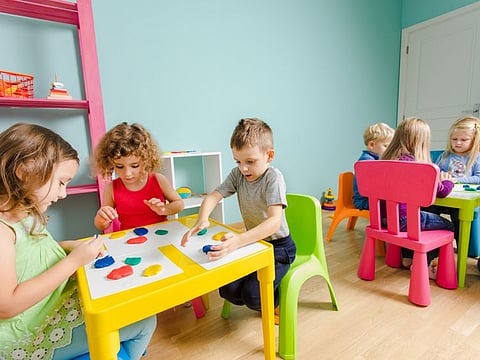How pre-schools can support a child’s development
Vandana Gandhi reveals how nurseries can help a child during the crucial growing years

Could you tell us a bit about speech support and the tools used in preschools to support a child’s development?
One of the sweetest sounds a parent ever hears is the first word from their child. While most of the young children develop normal speech and language as they grow, some may have difficulties in this area of early years development.
Research has found that children with any form of communication difficulties and/or delays in their language development can benefit from interventions between birth and age five.
Good preschools offer extensive programs for children that include a language-rich environment, customized learning plans to meet their individual needs, multi-sensorial play opportunities, and special attention from a qualified SENCO leader. The teachers are trained and well-qualified to observe the presence of common baby sounds, patterns of movements of the baby’s lips and tongue, the timing of the child’s first sounds and words, cognitive delays, hearing difficulties, acquisition of vocabulary, difficulties in pronunciation, thumb-sucking, extended use of pacifiers, and delay in weaning the child from bottle-feeding, and so on.
This information is tracked using the relevant age strand of the EYFS Development Matters of the UK which helps early learning centers identify any concerns in the child’s speech and language development.
Once a developmental delay is identified, a set of tools is used during daily activities by qualified nurseries to support such children. These include:
1. Imitation games where children learn to copy sounds, words, or phrases.
2. Storytime in classrooms for children to learn how to correctly form sentences.
3. Group discussions feature picture cards to learn associated vocabulary and object identification.
4. Good educational settings have multi-lingual teachers who have skills to support children with EAL/ESL.
5. Emphasis is also given to building positive relationships with parents to support them in coping with needs of their child.
Despite the best efforts, some children may still need targeted interventions by trained professionals and the inclusion teams at preschools coordinate this to achieve the best possible outcomes for each child. Certified preschools help every child learn and develop in a holistic environment and attain great success.
Sign up for the Daily Briefing
Get the latest news and updates straight to your inbox





